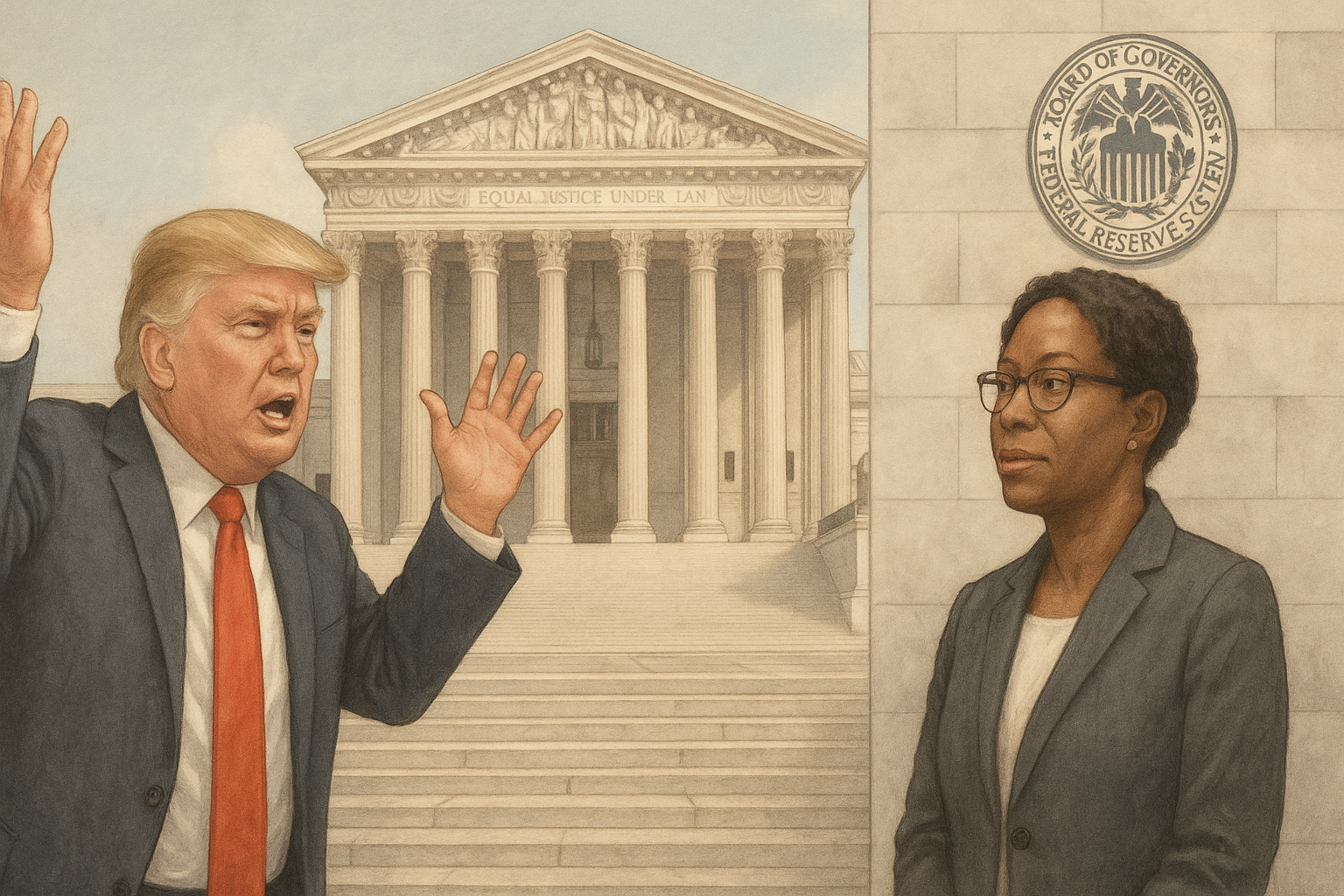The Supreme Court yesterday slapped down Donald Trump's attempt to fast-track the removal of Federal Reserve Governor Lisa Cook from her position—a move that's left the president-elect reportedly fuming at what he sees as yet another institutional roadblock to his agenda.
I've been covering the tension between presidential authority and central bank independence since Trump's first term, and this latest skirmish follows a predictable pattern. At its heart, this case revolves around a straightforward question with complicated implications: Can a president fire Fed governors at will, or does Cook enjoy protection until her term expires in—wait for it—2038?
Trump's lawyers have constructed an argument that, on its face, seems plausible. They contend the Federal Reserve Act doesn't explicitly shield governors from presidential removal. Simple enough.
But here's the thing. Central bank independence isn't just some academic nicety—it's the bedrock that prevents monetary policy from becoming a political football kicked around every election cycle. Markets hate uncertainty, and nothing screams "uncertainty" quite like a Fed whose leadership might be purged whenever a new administration rolls into town.
The Court's decision (which isn't final, merely declining to rush a ruling before Trump's inauguration) means the case will crawl through the judicial system at the usual glacial pace. Probably for the best.
What's particularly telling is how this fits into Trump's broader personnel strategy for his second term. His team has made no secret—none whatsoever—about wanting loyalists throughout government. The Schedule F initiative, those loyalty pledges we've heard about... it all points in one direction. Control.
Financial markets barely registered this constitutional drama. The dollar yawned. Treasury yields continued their dance with inflation expectations rather than constitutional crisis fears. Traders, it seems, have developed a certain immunity to institutional threats that may or may not materialize.
But let's be real about what's at stake. Imagine fighting inflation when your job security depends on pleasing a president who tweets angrily about interest rates. (Trump, you'll recall, spent much of his first term publicly berating Jerome Powell before eventually reappointing him—a contradiction that seems perfectly on-brand.)
The longer-term question hovers like a storm cloud. What happens to Fed independence if Trump eventually prevails? Central banking works through expectations—markets respond not just to current rates but to beliefs about future policy directions. If governors serve at presidential pleasure, every election becomes a potential monetary policy reset.
For now, Cook stays put. The Fed maintains its structural independence. And Trump adds another grievance to his collection—a collection that seems to grow with each passing day.
This isn't about Cook specifically, though. It's about whether we want monetary policy dictated by political winds or guided by economic conditions. History suggests the latter works better, but history doesn't vote.
And neither, apparently, does the Supreme Court—at least not on Trump's preferred timeline.
